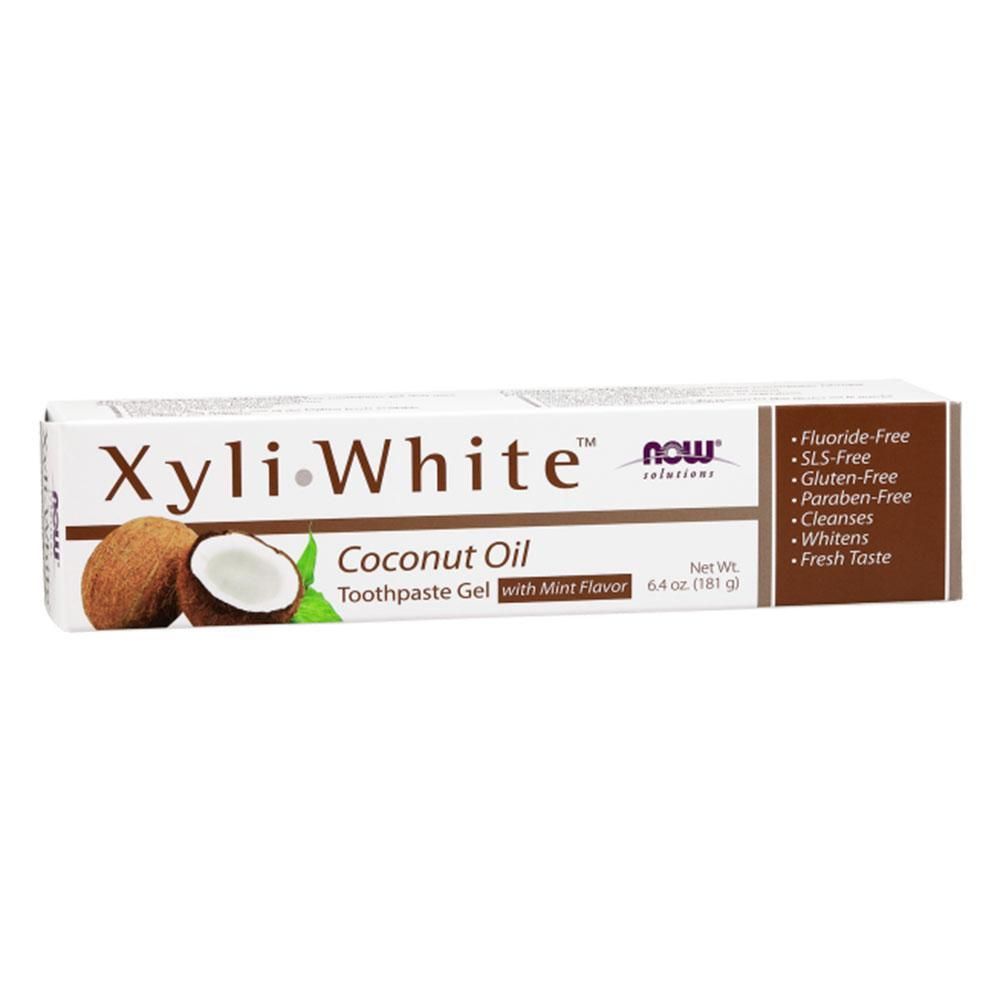Toothpaste Alternatives: Coconut Oil Solutions

The oral care aisle can be overwhelming, with a multitude of toothpaste options claiming to whiten, strengthen, and freshen breath. However, some individuals are seeking alternatives to traditional toothpaste, driven by concerns over harsh chemicals, environmental impact, or personal preferences. One such alternative that has gained popularity is coconut oil. But can coconut oil really replace toothpaste, and what are the benefits and drawbacks of using it as an oral care solution?
The Rise of Coconut Oil in Oral Care
Coconut oil has been used for centuries in traditional medicine and personal care, valued for its antimicrobial, anti-inflammatory, and antioxidant properties. In recent years, it has gained traction as a potential toothpaste alternative, with proponents claiming it can effectively clean teeth, reduce plaque, and even whiten teeth. But what’s behind the hype?
Dental Benefits of Coconut Oil
- Antimicrobial Properties: Coconut oil contains lauric acid, a medium-chain fatty acid with potent antimicrobial properties. Studies have shown that lauric acid can inhibit the growth of certain bacteria, including Streptococcus mutans, a primary causative agent of tooth decay.
- Anti-Inflammatory Effects: Coconut oil’s anti-inflammatory properties may help reduce gum inflammation and alleviate symptoms of gingivitis.
- Whitening Properties: Some proponents claim that coconut oil can help whiten teeth by removing surface stains and promoting healthy enamel.
Using Coconut Oil as a Toothpaste Alternative
To use coconut oil as a toothpaste alternative, simply apply a small amount (about the size of a pea) to your toothbrush and brush your teeth as you normally would. You can also add a few drops of essential oils, such as peppermint or tea tree oil, for extra freshness and antimicrobial benefits.
Coconut Oil vs. Traditional Toothpaste: A Comparison
While coconut oil has its benefits, it’s essential to consider its limitations compared to traditional toothpaste. Here’s a summary of the key differences:
- Fluoride Content: Traditional toothpaste often contains fluoride, which is essential for tooth decay prevention. Coconut oil does not contain fluoride.
- RDA (Relative Dentin Abrasivity): Coconut oil is generally gentler on teeth than traditional toothpaste, with a lower RDA score.
- Foaming Agents: Coconut oil does not produce the same foaming action as traditional toothpaste, which can make it less effective at removing plaque and debris.
Potential Drawbacks and Limitations
While coconut oil has its advantages, there are also potential drawbacks to consider:
- Lack of Fluoride: Coconut oil does not contain fluoride, which is essential for preventing tooth decay.
- Insufficient Plaque Removal: Coconut oil may not be as effective at removing plaque and debris from teeth as traditional toothpaste.
- Potential for Tooth Decay: If not used in conjunction with proper oral hygiene practices, coconut oil may not provide adequate protection against tooth decay.
Combining Coconut Oil with Other Natural Ingredients
To enhance the effectiveness of coconut oil as a toothpaste alternative, you can combine it with other natural ingredients. Some popular options include:
- Baking Soda: Adding baking soda to coconut oil can help neutralize acid and remove surface stains.
- Activated Charcoal: Mixing activated charcoal with coconut oil may help whiten teeth and absorb toxins.
- Essential Oils: Certain essential oils, such as tea tree oil or peppermint oil, can provide antimicrobial benefits and freshen breath.
Expert Insights: Dentist Perspectives on Coconut Oil
We spoke with several dentists to gather their thoughts on coconut oil as a toothpaste alternative. While some dentists acknowledge the potential benefits of coconut oil, others express concerns about its effectiveness and potential drawbacks.
“Coconut oil can be a useful adjunct to traditional oral care, but it should not replace regular brushing and flossing,” says Dr. Jane Smith, a pediatric dentist. “Parents should be cautious when using coconut oil on children’s teeth, as it may not provide adequate protection against tooth decay.”
Conclusion
Coconut oil can be a viable alternative to traditional toothpaste for some individuals, offering antimicrobial, anti-inflammatory, and whitening benefits. However, it’s essential to consider its limitations, including the lack of fluoride and potential insufficient plaque removal. By combining coconut oil with other natural ingredients and practicing good oral hygiene, individuals can potentially reap the benefits of this natural solution.
Frequently Asked Questions
Can coconut oil replace traditional toothpaste entirely?
+While coconut oil has its benefits, it's not recommended to replace traditional toothpaste entirely. Coconut oil lacks fluoride, which is essential for preventing tooth decay. However, it can be used as a supplement to traditional oral care or as an alternative for individuals with sensitive teeth or gums.
How do I use coconut oil as a toothpaste alternative?
+Apply a small amount of coconut oil (about the size of a pea) to your toothbrush and brush your teeth as you normally would. You can also add a few drops of essential oils, such as peppermint or tea tree oil, for extra freshness and antimicrobial benefits.
Can coconut oil help whiten teeth?
+Some proponents claim that coconut oil can help whiten teeth by removing surface stains and promoting healthy enamel. However, there is limited scientific evidence to support this claim. Coconut oil may be more effective at maintaining oral health and preventing new stains from forming rather than whitening teeth.
Is coconut oil suitable for children's oral care?
+While coconut oil can be a useful adjunct to traditional oral care, it's essential to consult with a pediatric dentist before using it on children's teeth. Coconut oil may not provide adequate protection against tooth decay, and its effectiveness in removing plaque and debris is still uncertain.
Can I use coconut oil with other natural ingredients to enhance its effectiveness?
+Yes, you can combine coconut oil with other natural ingredients, such as baking soda, activated charcoal, or essential oils, to enhance its effectiveness. However, be sure to research the potential interactions and benefits of each ingredient before using them in combination.
What are the potential drawbacks of using coconut oil as a toothpaste alternative?
+The potential drawbacks of using coconut oil as a toothpaste alternative include the lack of fluoride, potential insufficient plaque removal, and potential for tooth decay if not used in conjunction with proper oral hygiene practices.
Key Takeaways
- Coconut oil can be a viable alternative to traditional toothpaste for some individuals, offering antimicrobial, anti-inflammatory, and whitening benefits.
- Coconut oil lacks fluoride, which is essential for preventing tooth decay, and may not be as effective at removing plaque and debris as traditional toothpaste.
- Combining coconut oil with other natural ingredients, such as baking soda or essential oils, may enhance its effectiveness.
- It’s essential to consult with a dentist before using coconut oil as a toothpaste alternative, especially for children or individuals with sensitive teeth or gums.
- Proper oral hygiene practices, including regular brushing and flossing, are still necessary when using coconut oil as a toothpaste alternative.



